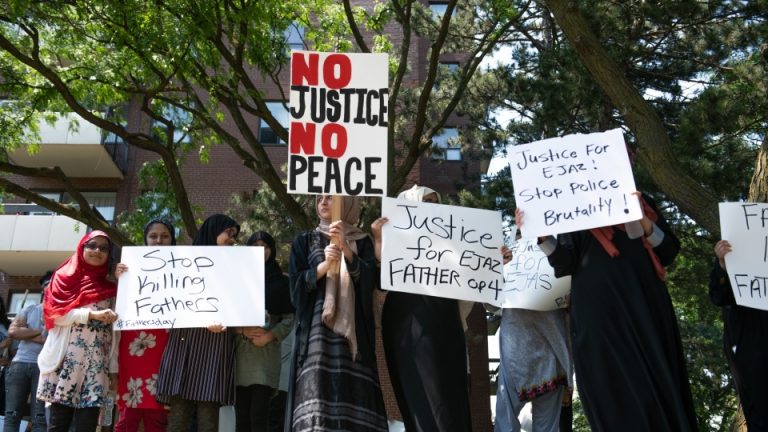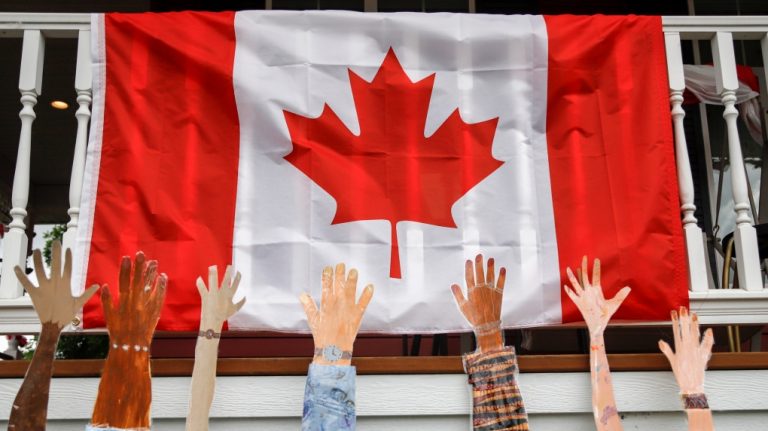Imagine the following situation. One of your family members has schizophrenia and is experiencing a crisis. You panic and call 911 for help. When they arrive, rather than helping your loved one, they react violently and your loved one dies as a result.
On June 20th, 2020, a 62-year-old Malton man, Ejaz Choudry was experiencing a mental health crisis. He had schizophrenia and his family was concerned he didn’t take his medicine. One of his family members called Peel Region’s non-emergency mental health line for help. Unfortunately, there weren’t enough mental health teams available that evening, so Peel Regional Police were dispatched instead. After very little communication or effort to help, the police officers shot and killed him. I remember being completely mortified the night this happened. The proper response would have been the region’s Mobile Crisis Rapid Response Team. This type of team consists of a nurse or social worker with a specially-trained police officer. When the Mobile Crisis Rapid Response Team was launched in Peel Region in May 2019, it received $1.5 million. This was clearly not adequate, as there are only 2 of these teams in the entire Region of Peel, a region of 1.4 million people. This is an example of how the mental illness perspective is often overlooked.
This is an outrage. Firstly, police should not have been the responders because they are not trained properly. It should have been mental health professionals who knew how to deal with the situation. Secondly, the police should not have used such excessive force. People with mental illness deserve compassion and help not judgment and violence!
Mental health cases can often escalate to a level where law enforcement is required, which is why I support the Mobile Crisis Rapid Response Team. It includes a social worker and specially trained police officer, therefore the program ensures mental health cases are treated properly and in a safe condition. I emphasize specially trained because it’s evident that regular police officers are not trained in a way that qualifies them to deal with mental illness cases.
A similar situation occurred earlier in the year. On April 6th, 2020, a 26-year-old Brampton man, D’Andre Campbell was experiencing a mental health crisis. He also suffered from schizophrenia. He called Peel Regional Police for help. Rather than try to assist him and deescalate the situation, two officers used energy weapons, then one officer shot him. Mental illness is not a crime! That should be obvious.
This is a situation where I believe mental health professionals are required, not police. If a form of law enforcement is required, then a specially trained police officer should be used, as in the Mobile Crisis Rapid Response Team. Between 2000 and 2017, 42% of people killed by police in Canada were experiencing a mental health crisis according to CBC News. Again, police should not respond to mental health calls. It can be extremely frightening for those in need of help and often ends in death or injury. This is echoed by the Canadian Mental Health Association and Centre for Addiction and Mental Health in Toronto.
I am very grateful for the work that Peel Regional Police and other police services do to keep communities safe. However, that does not mean the system is flawless. The cases mentioned are only a couple examples of police forces using excessive force on people with mental illness. The bottom line is, this needs to stop. There are alternatives to police for responding to mental health situations, and this change needs to happen soon. One of the solutions already exists, and that is the Mobile Crisis Rapid Response Team. However, this raises the question of how more change can happen. People should sign petitions, donate to organizations leading this movement; educate themselves, and most important VOTE! While youth cannot vote, the adults of society must meet their responsibility to vote for someone that will help ensure cases such as the ones mentioned above do not happen again! These are the actions that build community desire for change resulting in pressure on elected officials to make the change happen.
The message is simple. Mental illness is not a crime.
Sources
https://www.cbc.ca/news/canada/toronto/dandre-campbell-siu-1.5840192
https://www.cbc.ca/news/canada/toronto/ejaz-choudry-1.5622160



